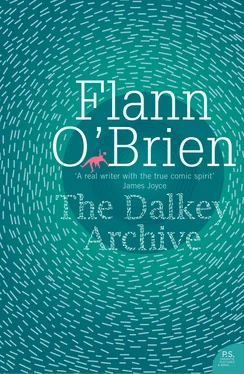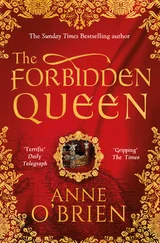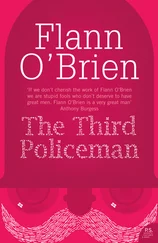– Well, well, Mick stammered.
– It merits destruction. Its history and prehistory, even its present, is a foul record of pestilence, famine, war, devastation and misery so terrible and multifarious that its depth and horror are unknown to any one man. Rottenness is universally endemic, disease is paramount. The human race is finally debauched and aborted.
– Mr De Selby, Hackett said with a want of gravity, would it be rude to ask just how you will destroy the world? You did not make it.
– Even you, Mr Hackett, have destroyed things you did not make. I do not care a farthing about who made the world or what the grand intention was, laudable or horrible. The creation is loathsome and abominable, and total extinction could not be worse.
Mick could see that Hackett’s attitude was provoking brusqueness whereas what was needed was elucidation. Even marginal exposition by De Selby would throw light on the important question – was he a true scientist or just demented?
– I can’t see, sir, Mick ventured modestly, how this world could be destroyed short of arranging a celestial collision between it and some other great heavenly body. How a man could interfere with the movements of the stars – I find that an insoluble puzzle, sir.
De Selby’s taut expression relaxed somewhat.
– Since our repast is finished, have another drink, he said, pushing forward the bottle. When I mentioned destroying the whole world, I was not referring to the physical planet but to every manner and manifestation of life on it. When my task is accomplished – and I feel that will be soon – nothing living, not even a blade of grass, a flea – will exist on this globe. Nor shall I exist myself, of course.
– And what about us? Hackett asked.
– You must participate in the destiny of all mankind, which is extermination.
– Guesswork is futile, Mr De Selby, Mick murmured, but could this plan of yours involve liquefying all the ice at the Poles and elsewhere and thus drowning everything, in the manner of the Flood in the Bible?
– No. The story of that Flood is just silly. We are told it was caused by a deluge of forty days and forty nights. All this water must have existed on earth before the rain started, for more can not come down than was taken up. Commonsense tells me that this is childish nonsense.
– That is merely a feeble rational quibble, Hackett cut in. He liked to show that he was alert.
– What then, sir, Mick asked in painful humility, is the secret, the supreme crucial secret?
De Selby gave a sort of grimace.
– It would be impossible for me, he explained, to give you gentlemen, who have no scientific training, even a glimpse into my studies and achievements in pneumatic chemistry. My work has taken up the best part of a life-time and, though assistance and co-operation were generously offered by men abroad, they could not master my fundamental postulate: namely, the annihilation of the atmosphere.
– You mean, abolish air? Hackett asked blankly.
– Only its biogenic and substantive ingredient, replied De Selby, which, of course, is oxygen.
– Thus, Mick interposed, if you extract all oxygen from the atmosphere or destroy it, all life will cease?
– Crudely put, perhaps, the scientist agreed, now again genial, but you may grasp the idea. There are certain possible complications but they need not trouble us now.
Hackett had quietly helped himself to another drink and showed active interest.
– I think I see it, he intoned. Exit automatically the oxygen and we have to carry on with what remains, which happens to be poison. Isn’t it murder though?
De Selby paid no attention.
– The atmosphere of the earth, meaning what in practice we breathe as distinct from rarefied atmosphere at great heights, is composed of roughly 78 per cent nitrogen, 21 oxygen, tiny quantities of argon and carbon dioxide, and microscopic quantities of other gases such as helium and ozone. Our preoccupation is with nitrogen, atomic weight 14.008, atomic number 7.
– Is there a smell off nitrogen? Hackett enquired.
– No. After extreme study and experiment I have produced a chemical compound which totally eliminates oxygen from any given atmosphere. A minute quantity of this hard substance, small enough to be invisible to the naked eye, would thus convert the interior of the greatest hall on earth into a dead world provided, of course, the hall were properly sealed. Let me show you.
He quietly knelt at one of the lower presses and opened the door to reveal a small safe of conventional aspect. This he opened with a key, revealing a circular container of dull metal of a size that would contain perhaps four gallons of liquid. Inscribed on its face were the letters DMP.
– Good Lord, Hackett cried, the DMP! The good old DMP! The grandfather was a member of that bunch.
De Selby turned his head, smiling bleakly.
– Yes – the DMP – the Dublin Metropolitan Police. My own father was a member. They are long-since abolished, of course.
– Well what’s the idea of putting that on your jar of chemicals?
De Selby had closed the safe and press door and gone back to his seat.
– Just a whim of mine, no more, he replied. The letters are in no sense a formula or even a mnemonic. But that container has in it the most priceless substance on earth.
– Mr De Selby, Mick said, rather frightened by these flamboyant proceedings, granted that your safe is a good one, is it not foolish to leave such dangerous stuff here for some burglar to knock it off?
– Me, for instance? Hackett interposed.
– No, gentlemen, there is no danger at all. Nobody would know what the substance was, its properties or how activated.
– But don’t we know? Hackett insisted.
– You know next to nothing, De Selby replied easily, but I intend to enlighten you even more.
– I assure you, Mick thought well to say, that any information entrusted to us will be treated in strict confidence.
– Oh, don’t bother about that, De Selby said politely, it’s not information I’ll supply but experience. A discovery I have made – and quite unexpectedly – is that a deoxygenated atmosphere cancels the apparently serial nature of time and confronts us with true time and simultaneously with all the things and creatures which time has ever contained or will contain, provided we evoke them. Do you follow? Let us be serious about this. The situation is momentous and scarcely of this world as we know it.
He stared at each of his two new friends in turn very gravely.
– I feel, he announced, that you are entitled to some personal explanation concerning myself. It would be quite wrong to regard me as a christophobe.
– Me too, Hackett chirped impudently.
– The early books of the Bible I accepted as myth, but durable myth contrived genuinely for man’s guidance. I also accepted as fact the story of the awesome encounter between God and the rebel Lucifer. But I was undecided for many years as to the outcome of that encounter. I had little to corroborate the revelation that God had triumphed and banished Lucifer to hell forever. For if – I repeat if – the decision had gone the other way and God had been vanquished, who but Lucifer would be certain to put about the other and opposite story?
– But why should he? Mick asked incredulously.
– The better to snare and damn mankind, De Selby answered.
– Well now, Hackett remarked, that secret would take some keeping.
– However, De Selby continued, perplexed, I was quite mistaken in that speculation. I’ve since found that things are as set forth in the Bible, at least to the extent that heaven is intact.
Hackett gave a low whistle, perhaps in derision.
– How could you be sure? he asked. You have not been temporarily out of this world, have you, Mr De Selby?
Читать дальше












